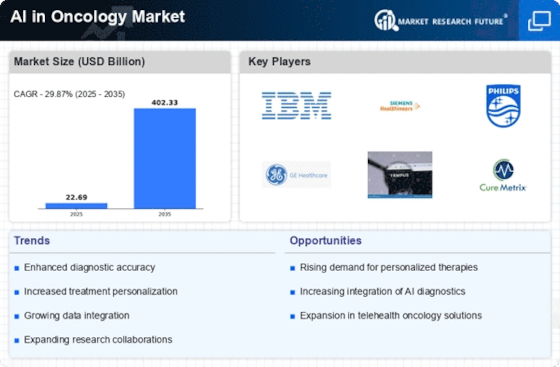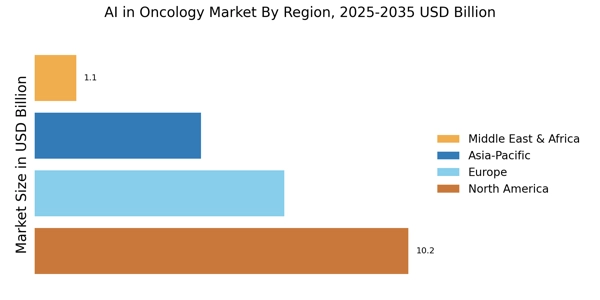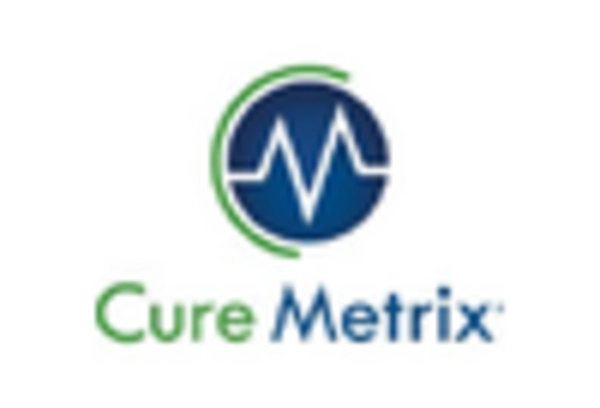Rising Incidence of Cancer
The increasing prevalence of cancer worldwide is a primary driver for the AI in Oncology Market. According to recent statistics, cancer cases are projected to rise significantly, with estimates suggesting that by 2040, there could be over 27 million new cancer cases annually. This alarming trend necessitates innovative solutions, such as artificial intelligence, to enhance early detection and treatment options. AI technologies are being integrated into oncology practices to analyze vast datasets, improving diagnostic accuracy and treatment efficacy. As healthcare systems grapple with the growing burden of cancer, the demand for AI-driven tools is likely to escalate, propelling the AI in Oncology Market forward.
Advancements in Machine Learning
The rapid advancements in machine learning technologies are transforming the AI in Oncology Market. Machine learning algorithms are increasingly capable of processing and analyzing complex medical data, leading to improved diagnostic and treatment outcomes. For instance, AI systems can now identify patterns in imaging data that may be imperceptible to human clinicians. This capability not only enhances the accuracy of cancer diagnoses but also facilitates the development of personalized treatment plans. As machine learning continues to evolve, its integration into oncology practices is expected to expand, driving growth in the AI in Oncology Market and fostering innovation in cancer care.
Regulatory Support for AI Innovations
Regulatory bodies are increasingly supportive of AI innovations in healthcare, which is a crucial driver for the AI in Oncology Market. Initiatives aimed at streamlining the approval process for AI-based medical devices and software are being implemented, facilitating quicker access to market for new technologies. This regulatory environment encourages companies to invest in AI solutions for oncology, knowing that their products can reach healthcare providers and patients more efficiently. As regulations evolve to accommodate the unique challenges posed by AI, the AI in Oncology Market is likely to experience accelerated growth, fostering a landscape ripe for innovation.
Growing Demand for Telemedicine Solutions
The rising demand for telemedicine solutions is significantly influencing the AI in Oncology Market. As patients increasingly seek remote healthcare options, the integration of AI into telemedicine platforms is becoming essential. AI technologies can enhance virtual consultations by providing real-time data analysis and decision support for oncologists. This capability not only improves patient outcomes but also streamlines the workflow for healthcare providers. The trend towards telemedicine is expected to persist, particularly as patients prioritize convenience and accessibility. Consequently, the AI in Oncology Market is likely to expand as telemedicine solutions become more prevalent, driving the adoption of AI technologies in cancer care.
Increased Investment in Healthcare Technology
The surge in investment in healthcare technology is a significant catalyst for the AI in Oncology Market. Governments and private entities are recognizing the potential of AI to revolutionize cancer care, leading to substantial funding for research and development. Reports indicate that investments in AI healthcare solutions are projected to reach billions of dollars in the coming years. This influx of capital is likely to accelerate the development of AI applications in oncology, from diagnostic tools to treatment optimization. As financial resources become more readily available, the AI in Oncology Market is poised for robust growth, enabling the creation of cutting-edge solutions to combat cancer.

















